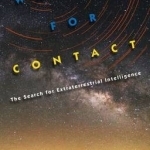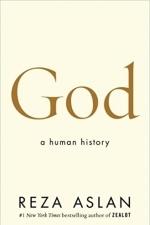Hadley (567 KP) rated The Lost Causes of Bleak Creek in Books
Jan 21, 2020
When you read this novel by two of the most well-known YouTube personalities (Rhett and Link of Good Mythical Morning), be sure you have plenty of time to spare because this is a book you won't want to put down. The novel follows three best friends of a small town in North Carolina in the early 1990's, when one of them gets sent to a infamous reform school for an accident, they start to uncover mysterious deaths that have taken place there, and begin to fear that their friend is going to be a victim of one.
In 'The Lost Causes of Bleak Creek,' the main characters, Rex, Leif and Alicia, make their debut at a pig roasting to raise funds for a church, whose copper organ pipes had been stolen days before. It's here we learn that the three are making a film called PolterDog, which leads to Alicia getting sent away after a near-deadly accident with the owner and headmaster of the local Whitewood Reform School.
Soon after, Rex and Leif run into an escapee from the school (Ben), who tells them that their friend's life is in danger while she's at Whitewood. While the three come up with a plan to rescue Alicia, a woman who's visiting the town of Bleak Creek, who is trying to film a documentary about kidney stones, becomes a valuable part of their rescue mission.
Not only do we get to see from Rex and Leif's point of view, but we also get to see from inside the Whitewood Reform School from Alicia's view. This view point is much needed to help readers experience the abuse that goes on inside the school (and to realize that Ben was telling the truth) and also to help readers root for the main characters' success in their rescue mission. Even though the majority of the story is the main characters getting everything together for this mission, the writing was done so well that all of it makes sense leading up to the end.
To not give too much away about this book, I have to cut my review short of it. The writing is really good, with the pace continuously keeping the reader going and wanting more.This story also encompasses everything that makes a great novel: best friends trying to save another, small town mysteries, well-placed humor and murder. I found all of the characters likable, and the situations they found themselves in made complete sense in the story. This will be one that readers can pick up more than once and enjoy it each time they read it. As a horror book, this story is high on my scale with scenarios happening that I couldn't see coming.
Hazel (1853 KP) rated God: A Human History in Books
Nov 5, 2017
Where did religion come from? This is the question Reza Aslan, a scholar of religions, attempts to answer in his latest publication, God: A Human History. To date, Aslan has tackled subjects such as the life of Jesus of Nazareth, and the origins, evolution and future of Islam. In this book, the author journeys back to the earliest evidence of human existence and, using a mix of resources, theories and investigations, tries to determine how our ancestors conceived the idea of gods and souls. Maintaining the idea that the majority of humans think of God as a divine version of ourselves, Aslan also looks at the way our perception of life after death has altered due to the changes in our governments and cultures.
Reza Aslan claims that he, a Muslim-devout-Christian-convert-turned-Sufi, is neither trying to prove or disprove the existence of God or gods. Instead, he is providing readers with a thorough history of religion with a strong suggestion that we, as believers, have fashioned God in our image, and not the other way around.
Insisting that belief systems are inherited from each previous generation, Aslan takes a look at ancient cave drawings where he, and many other theorists, surmise that a form of religion was already well underway. Lack of written word results in a lot of speculation and hypothesis as to what these, usually animal-like, drawings represent, however, many have come to the conclusion that early humans had some form of animistic belief system.
Although not a dig at religion, after all, the author is religious himself, the following chapters bring in to question the authenticity of past and present beliefs. With reference to various psychologists, Aslan poses the theory that ancient humans may have misinterpreted dreams as evidence of a spirit realm. With no one qualified to clarify the things they did not understand, anything without a clear explanation may have been attributed to a god or gods.
As the author describes how religious ideas may have developed from these primitive beliefs to the fully detailed faiths of today, he labels the human race as anthropocentric creatures that have based their religions on human traits and emotions. By reporting in this way, it comes across that the past ideas of the soul, spiritual realms, gods and so forth could not possibly be true, yet, as the final chapters suggest, Aslan is still adamant about the existence of God.
Aslan’s narrative speeds up, finally reaching the recognizable religions of today. Beginning with the Israelites, enslaved by the Egyptians, the author explains, using biblical references, how the first successful monotheistic religion came about. However, researchers have studied the early Bible texts and are inconclusive as to whether the God worshipped by the Jews was the only divine being or whether there were others of a similar standing.
Next, Aslan explores Christianity, posing more questions than he solves, for example, is God one or is God three (i.e. the Holy Trinity)? He defines and compares the definitions of monotheism and pantheism, eventually bringing in Islam and the development of Sufism, which he is not afraid of admitting he agrees with.
God: A Human History is disappointingly short, ending with the feeble conclusion that humans are born with the ability to be convinced of the existence of a divine being and the soul, but it is our own choice to decide whether or not to believe in them. The remaining third of the book is an abundance of notes on the texts, bibliographical references, and Reza Aslan’s personal opinions about the ideas and theories mentioned in his history of religion.
Although an extensive history on the origins of religion, God: A Human History leaves readers none the wiser as to whether their belief is founded in truth or whether it is something that has evolved over time due to lack of understanding about the world. Granted, it was not the aim of the book to prove or disprove the existence of God, however, it may unintentionally sow seeds of doubt or, potentially, anger devout believers. However, there is no attempt at persuading readers to believe one thing or another, thus making it suitable for people of all religion and none.
Hazel (1853 KP) rated God: A Human History in Books
Dec 7, 2018
</i>
Where did religion come from? This is the question Reza Aslan, a scholar of religions, attempts to answer in his latest publication, <i>God: A Human History.</i> To date, Aslan has tackled subjects such as the life of Jesus of Nazareth, and the origins, evolution and future of Islam. In this book, the author journeys back to the earliest evidence of human existence and, using a mix of resources, theories and investigations, tries to determine how our ancestors conceived the idea of gods and souls. Maintaining the idea that the majority of humans think of God as a divine version of ourselves, Aslan also looks at the way our perception of life after death has altered due to the changes in our governments and cultures.
Reza Aslan claims that he, a Muslim-devout-Christian-convert-turned-Sufi, is neither trying to prove or disprove the existence of God or gods. Instead, he is providing readers with a thorough history of religion with a strong suggestion that we, as believers, have fashioned God in our image, and not the other way around.
Insisting that belief systems are inherited from each previous generation, Aslan takes a look at ancient cave drawings where he, and many other theorists, surmise that a form of religion was already well underway. Lack of written word results in a lot of speculation and hypothesis as to what these, usually animal-like, drawings represent, however, many have come to the conclusion that early humans had some form of animistic belief system.
Although not a dig at religion, after all, the author is religious himself, the following chapters bring in to question the authenticity of past and present beliefs. With reference to various psychologists, Aslan poses the theory that ancient humans may have misinterpreted dreams as evidence of a spirit realm. With no one qualified to clarify the things they did not understand, anything without a clear explanation may have been attributed to a god or gods.
As the author describes how religious ideas may have developed from these primitive beliefs to the fully detailed faiths of today, he labels the human race as anthropocentric creatures that have based their religions on human traits and emotions. By reporting in this way, it comes across that the past ideas of the soul, spiritual realms, gods and so forth could not possibly be true, yet, as the final chapters suggest, Aslan is still adamant about the existence of God.
Aslan’s narrative speeds up, finally reaching the recognizable religions of today. Beginning with the Israelites, enslaved by the Egyptians, the author explains, using biblical references, how the first successful monotheistic religion came about. However, researchers have studied the early Bible texts and are inconclusive as to whether the God worshipped by the Jews was the only divine being or whether there were others of a similar standing.
Next, Aslan explores Christianity, posing more questions than he solves, for example, is God one or is God three (i.e. the Holy Trinity)? He defines and compares the definitions of monotheism and pantheism, eventually bringing in Islam and the development of Sufism, which he is not afraid of admitting he agrees with.
<i>God: A Human History </i>is disappointingly short, ending with the feeble conclusion that humans are born with the ability to be convinced of the existence of a divine being and the soul, but it is our own choice to decide whether or not to believe in them. The remaining third of the book is an abundance of notes on the texts, bibliographical references, and Reza Aslan’s personal opinions about the ideas and theories mentioned in his history of religion.
Although an extensive history on the origins of religion, <i>God: A Human History </i>leaves readers none the wiser as to whether their belief is founded in truth or whether it is something that has evolved over time due to lack of understanding about the world. Granted, it was not the aim of the book to prove or disprove the existence of God, however, it may unintentionally sow seeds of doubt or, potentially, anger devout believers. However, there is no attempt at persuading readers to believe one thing or another, thus making it suitable for people of all religion and none.

Why Minsky Matters: An Introduction to the Work of a Maverick Economist
Book
Perhaps no economist was more vindicated by the global financial crisis than Hyman P. Minsky...

Pasha - My Story: The Autobiography of TV's Hottest Dance Star
Book
Pasha's talent and determination has taken him to some amazing places all around the world including...

Both Sides of the Bench
Book
Barrington Black was for many years one of the UK's best-known criminal defence lawyers and founder...
Letters of Sylvia Plath
Sylvia Plath, Karen Kukil and Peter K. Steinberg
Book
The Letters of Sylvia Plath: Volume One (1940-1956). Sylvia Plath (1932-1963) was one of the writers...

Waiting for Contact: The Search for Extraterrestrial Intelligence
Book
Imagine a network of extraterrestrials in radio contact with each other across the universe,...

Richard III
William Shakespeare and Thomas Cartelli
Book
This Norton Critical Edition of Richard III is based on the First Quarto (1597) edition of the play...
The Music of Simon Holt
Book
British composer Simon Holt (b. 1958) has been a leading presence in contemporary music since the...


